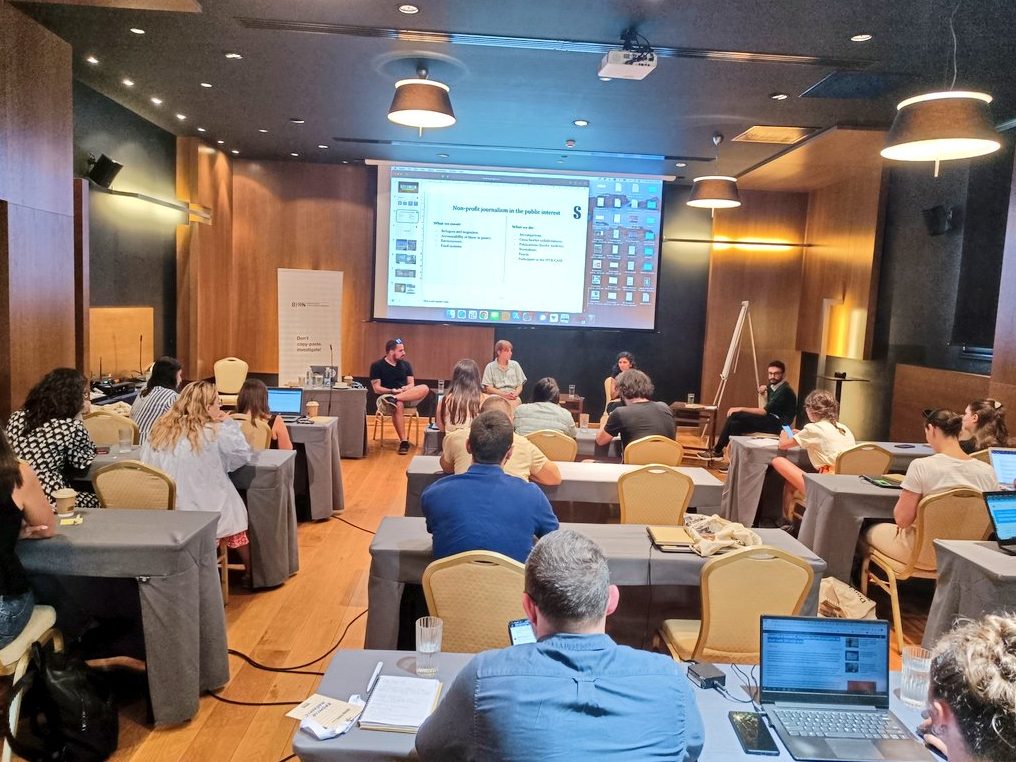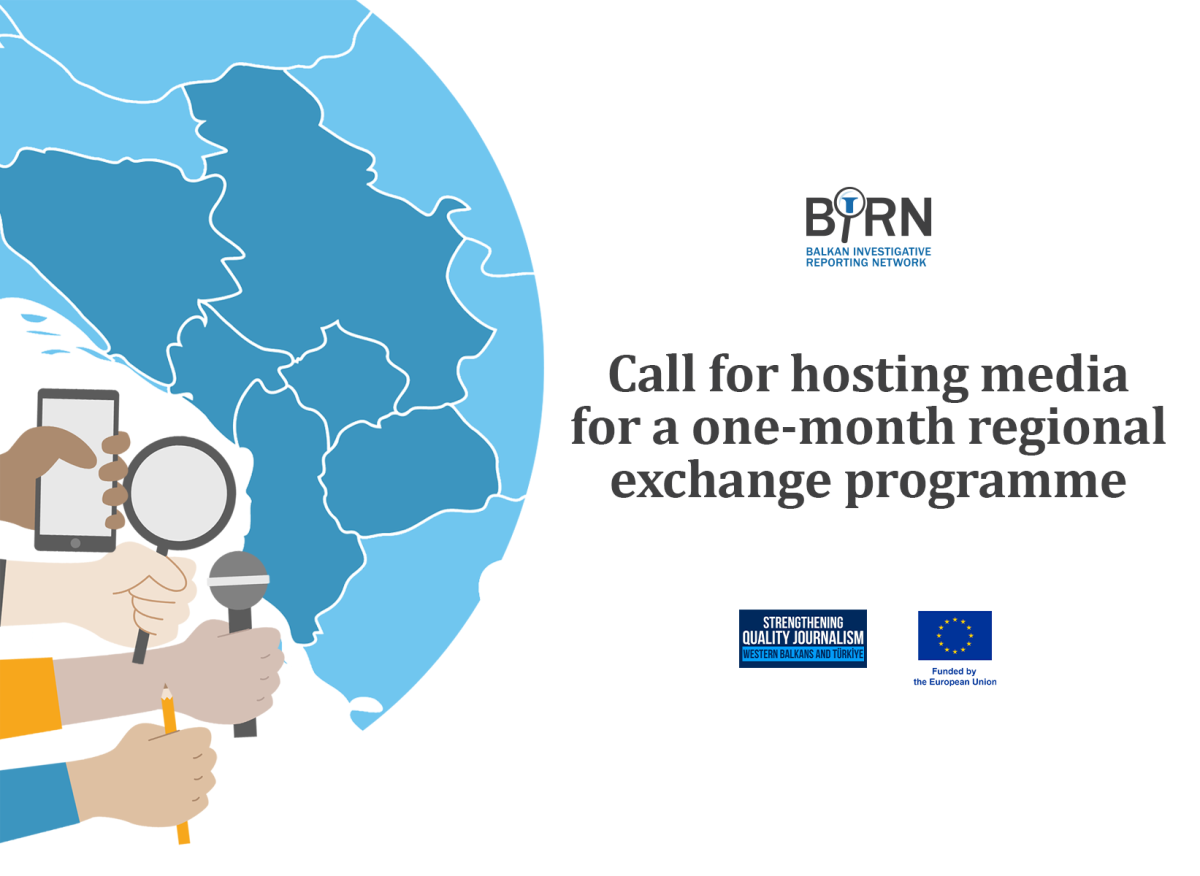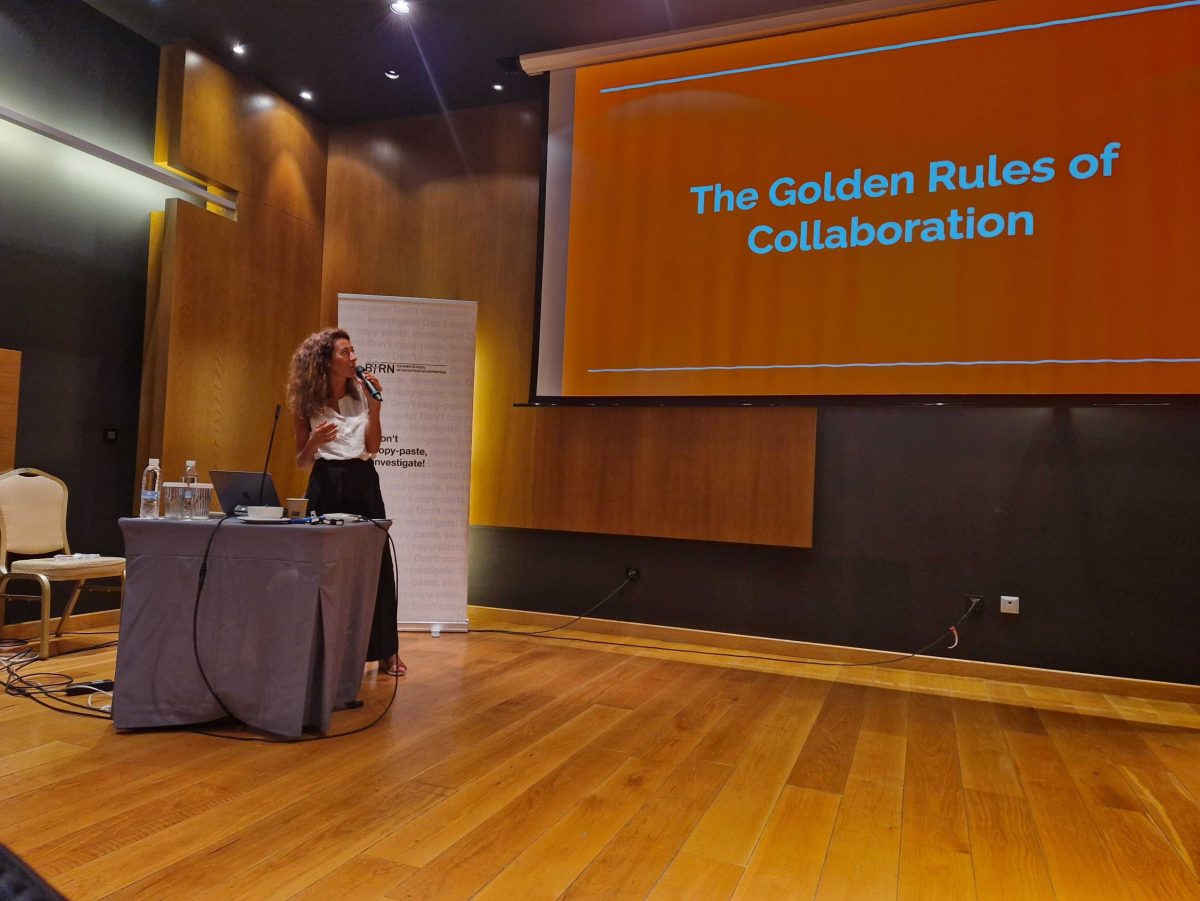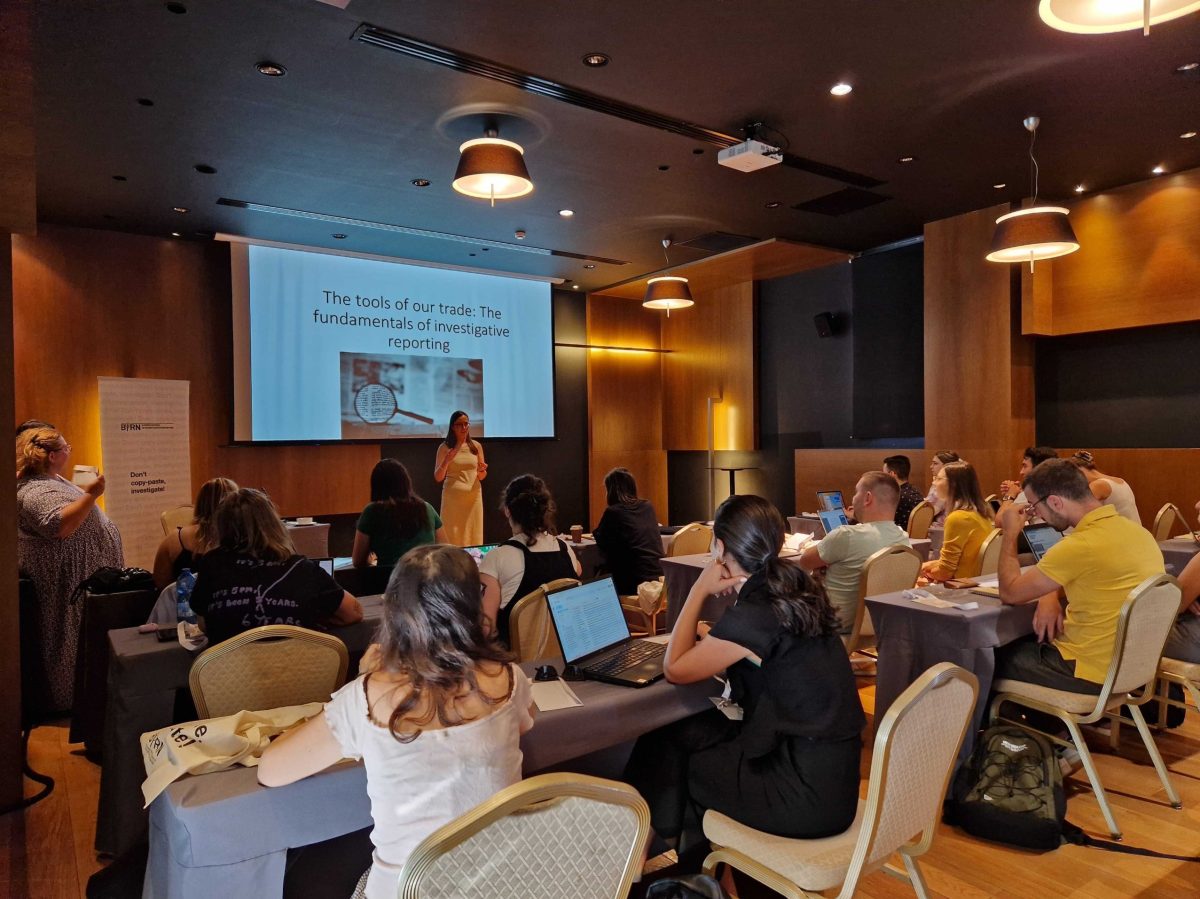Sessions on investigating human rights abuses kicked off the fifth day of BIRN’s Summer School of Investigative Reporting in Thessaloniki, Greece.
Alison Killing, founder of Killing Architects, spoke about how they used advanced visual investigation techniques to uncover the tragic events that led to the deaths of 23 people and the disappearance of 77 others at the border post in Melilla, Spain, in June last year.
Killing also presented their investigation into the network of camps built by the Chinese government in Xinjiang for the mass detention of Muslims. Journalists couldn’t work effectively in Xianjing, so they used satellite imagery.
“When we started, we thought we might find 500,000 blanked-out map tiles on the Chinese Baidu Maps. We found 5 million,” Killing said. The question was how this information could meet journalistic standards.
Participants were introduced to data journalism, a discipline based on data analysis that helps tell stories that happen systematically. Editor-in-Chief of Correctiv Olaya Argüeso Perez presented examples of data-based stories and then guided journalists through some exercises.
Friday concluded with a panel discussion on investigating the crisis over migration policy in Greece.
Apostolos Fotiadis and Stavros Maluchidis, from the Greek independent media outlet “We Are Solomon”, discussed the challenges of reporting on migration.
“The Greek public broadcaster calls migrants ‘illegal’. This should not be the case. We, journalists, need to work better and think about the language we use,” Maluchidis said.
The Head of the Migration Policy Europe Programme at the Heinrich Böll Stiftung, Neda Noraie-Kia, agreed.
“Mainstream media play a crucial role in informing the public about migrants and assessing what is happening with them. Policies go hand in hand with the language used. With this kind of language, they are already suggesting that something illegal is happening,” Noraie-Kia said.
“Traditional reporting is dead. To make it work, we need to combine different techniques, such as OSINT when reporting on migration,” Maluchidis added.
Apostolos Fotiadis talked about the responsibility of journalists when covering the war in Ukraine.
“We need to go beyond the agenda of Brussels and governments. We should also talk about arms trade and export that fuels wars and displacement,” he said.
The one-week training programme ended on Saturday with the participants presenting their investigative story proposals to BIRN editors.
Journalists pitched more than 15 ideas, mostly cross-border. Proposed stories deal with migration, healthcare, human rights and corruption, to name a few.
BIRN editors will select the best pitches. Selected journalists will receive funding, editorial support and mentoring from BIRN.










